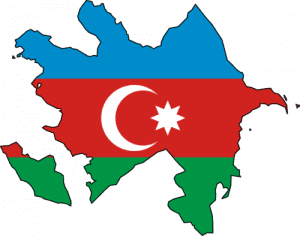This atricle originally appeared on Huffington Post UK
As we head towards one more Eurovision final, will a spotlight also be shone onto the serious human rights abuses in Azerbaijan, this year’s host? Or will the Azerbaijani government succeed in burnishing their image and hiding the reality of violence, repression and an increasingly hostile environment for journalists, bloggers, academics, activists and others?
The Azerbaijani government is spending a lot of money on Eurovision — an estimated £24 million — with the goal of promoting Azerbaijan as a modern, democratic country with much to offer beyond its oil and gas resources, not least as destination for tourism. Those oil and gas resources are doubtless one key reason, sadly, why the US and European governments are putting little pressure on Azerbaijan to stop its human rights abuses and to tackle the cracked facade of its political system that can no longer be in any way labelled democratic.
But as Bahrain and the Formula 1 race showed earlier this month, big events can have a nasty habit of showing the truth about a country’s human rights record, rather than covering it up. Perhaps with this in mind, the government in Baku has just released one jailed opposition activist Elnur Majidlii only weeks into a two-year sentence. But the wide-ranging and worsening repression of free speech and freedom to protest in Azerbaijan will not be solved — or hidden — by such gesture politics. Meanwhile, the government has unleashed a huge programme of evictions and demolitions as it beautifies parts of Baku ahead of Eurovision.
As hundreds of journalists fly into Baku to cover the event — expected to attract an audience of 125 million people — they should spare more than a passing thought for their Azerbaijani colleagues in what Freedom House has called “one of the world’s most hostile media environments”. And they should be aware too that foreign journalists have not been immune from attack either.
In November 2011, writer Rafiq Tagi was attacked outside his home and later died. No one has been brought to justice for his murder. And just last month, shortly after winning the Index on Censorship/Guardian Award for journalism, investigative reporter Idrak Abbasov was beaten unconscious by private security guards as he attempted to film a demolition by the state oil company. Police looked on and others were prevented from going to his assistance. Abbasov commented after the attack: “They weren’t just beating me, they were trying to kill me.”
These attacks are not isolated instances. The Azerbaijani Institute for Reporters’ Freedom and Safety documented 50 domestic and foreign journalists being harassed or attacked in 2011 and 2012 has already seen dozens detained or assaulted. Yet, in the last seven years, there have been no arrests or prosecutions related to violence against journalists. It is a climate of impunity.
Intimidation and repression to try to silence bloggers and journalists online as well is also widespread – a deadly irony given Baku will host another big international event this autumn, the Internet Governance Forum. In March, outspoken blogger, Khadija Ismayilova, was the victim of a vicious attempt at intimidation: she received a set of intimate photographs, with a note warning her to “behave” or she would be “defamed”. When Ismayilova refused to bow to pressure, a sensitive video of her private life, secretly filmed, was posted to the internet. These are the smear tactics worthy of the former Soviet Union to which Azerbaijan used to belong.
And it’s not just journalists — a whole range of people including musicians, gay rights campaigners, and ordinary people on protests marches, have faced attacks. In March, two singers Jamal Ali and Natig Kamilov were arrested during a legal protest. Jamal Ali was subsequently tortured while in jail.
It is deeply uncomfortable that such a light, pop event as Eurovision takes place in a country living in a climate of such fear and oppression. But Eurovision will do Azerbaijani journalists, artists, and ordinary people a great service if the media, social networks, governments and other international organisations use the Eurovision spotlight to demand change.
The Council of Europe should be leading these demands — it is Europe’s foremost institution to protect human rights. Yet having let Azerbaijan join in 2001, it has been slow to act as Azerbaijan’s weak democratic credentials have slithered ever downwards towards Freedom House’s lowest ‘not free’ categorisation. Azerbaijan has done its best too to obstruct Council of Europe investigations of its abuses — repeatedly refusing a visa to the Council’s special rapporteur on political prisoners. And surely the European Union too should be putting greater pressure on a country hosting such a high profile European event.
This year’s Eurovision takes place in a country where opposition voices are silenced, journalists are killed for doing their work and citizens are punished for making their grievances known. Many fear that after the last pop fans have packed their bags, international attention will move on. For those working hard to get the truth out in Azerbaijan, this would be a tragedy. Index hopes that thousands will sign its e-petition protesting at the Azeri government’s abuses on the night of the final. The final could be a moment when a wave of pressure for change builds up. And not a moment when the veils are drawn again over such egregious abuses.
Kirsty Hughes is Index on Censorship’s chief executive
Index has a petition calling for free speech to be upheld in Azerbaijan, sign it here.





